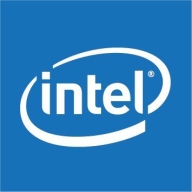

Cisco UCS C-Series Rack Servers and Intel Server Systems compete in the server market, with Cisco favored for support and pricing while Intel is preferred for advanced features despite higher costs. Cisco is well-regarded for its management tools, and Intel gains recognition for technological advancements.
Features: Cisco UCS C-Series offers strong integration and scalability, ideal for expanding businesses, along with comprehensive management tools. Intel Server Systems are highlighted for powerful processing capabilities, energy-efficient designs, and feature-rich offerings.
Room for Improvement: Cisco could improve compatibility with third-party applications, address occasional software update issues, and enhance documentation. Intel could provide better firmware updates, improve documentation quality, and offer more information for system customization.
Ease of Deployment and Customer Service: Cisco provides straightforward deployment and responsive customer service, facilitating integration. Intel, known for robust performance, may face criticism for complex setups and slower support responses. Cisco is noted for quick assistance and seamless installation, while Intel users encounter intricacies.
Pricing and ROI: Cisco's competitive initial costs are attractive to budget-conscious users seeking good ROI. Intel's technology promises long-term value but starts at a higher price. Users find Cisco's pricing more accessible, while valuing performance gains from Intel's high-end solutions, aligning with expectations for ROI from Cisco's affordability and Intel's superior longevity.

UCS C-Series Rack Servers deliver unified computing in an industry-standard form factor to reduce TCO and increase agility. Each server addresses varying workload challenges through a balance of processing, memory, I/O, and internal storage resources.
Storage is simple with the Intel Storage System JBOD2000 family, a 2U form factor system with support for twelve 3.5" LFF or twenty-four 2.5" SFF drives with a single or multi-cable connectivity. The JBOD2000 family includes redundant, hot-swap fans and the option for redundant, hot-swap power supplies. The JBOD2000S2 products support 6Gb/s SAS/SATA connectivity via industry-standard SFF-8088 connectors with the latest JBOD2000S3 version supports up to 12 Gb/s SAS connectivity via industry standard SFF-8644 connectors. All these JBOD offerings are designed to provide highly available and easily expandable storage for Intel servers at an affordable price point.
We monitor all Rack Servers reviews to prevent fraudulent reviews and keep review quality high. We do not post reviews by company employees or direct competitors. We validate each review for authenticity via cross-reference with LinkedIn, and personal follow-up with the reviewer when necessary.